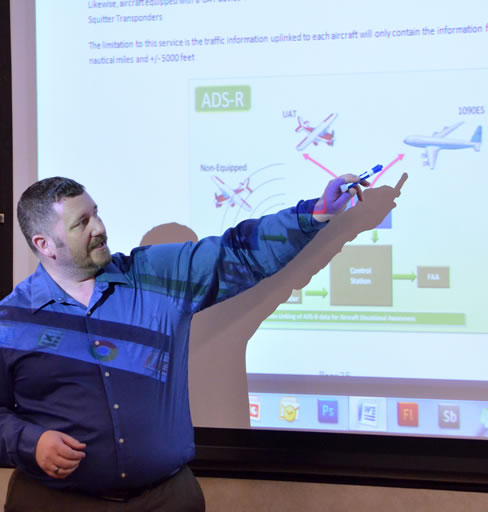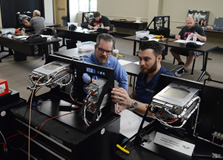

Educators
The aerospace industry includes a variety of occupations, including pilots, avionics technicians, mechanics, aerospace engineers, and air traffic controllers, among others. The industry also employs thousands more in sales, marketing, finance, legal, insurance, and human resources. It includes companies involved in the design, manufacture, maintenance and operation of aircraft, spacecraft and their related systems.
Resources
Download our resources to help students learn more about how they can find a career they are passionate about in aerospace.
Want to be more informed?
Many careers in the aerospace industry require specialized training and education, such as a college degree in a relevant field or professional certification. For example, pilots and mechanics typically need to complete a specific training program and pass an FAA exam in order to earn their certificates. Some careers can start right after high school and some may require completion of a four-year degree such as aerospace engineering.
Careers are well-paying, especially those that require specialized skills and education. According to the U.S. Bureau of Labor Statistics, the median annual wage in May 2024 for airline pilots was $226,600. For aircraft mechanics and service technicians, the median annual wage was $79,140. For avionics technicians, the mean annual wage was $77,080 (as of April 2025, BLS data) , and for air traffic controllers, it was $144,580 in May 2024.
Working in the aerospace industry may involve travel, either as a pilot or crew member on an aircraft, or as part of a team working on projects at different locations. This can be an exciting and rewarding aspect of these careers, but it can also present challenges such as being away from home for extended periods of time.
Some careers in the aerospace industry can be physically and mentally demanding, particularly those that involve operating aircraft or working under tight deadlines or in high-stress environments. It's important for educators to help students understand the rewards and the demands of these careers to ensure they are prepared for the opportunities as well as the challenges.